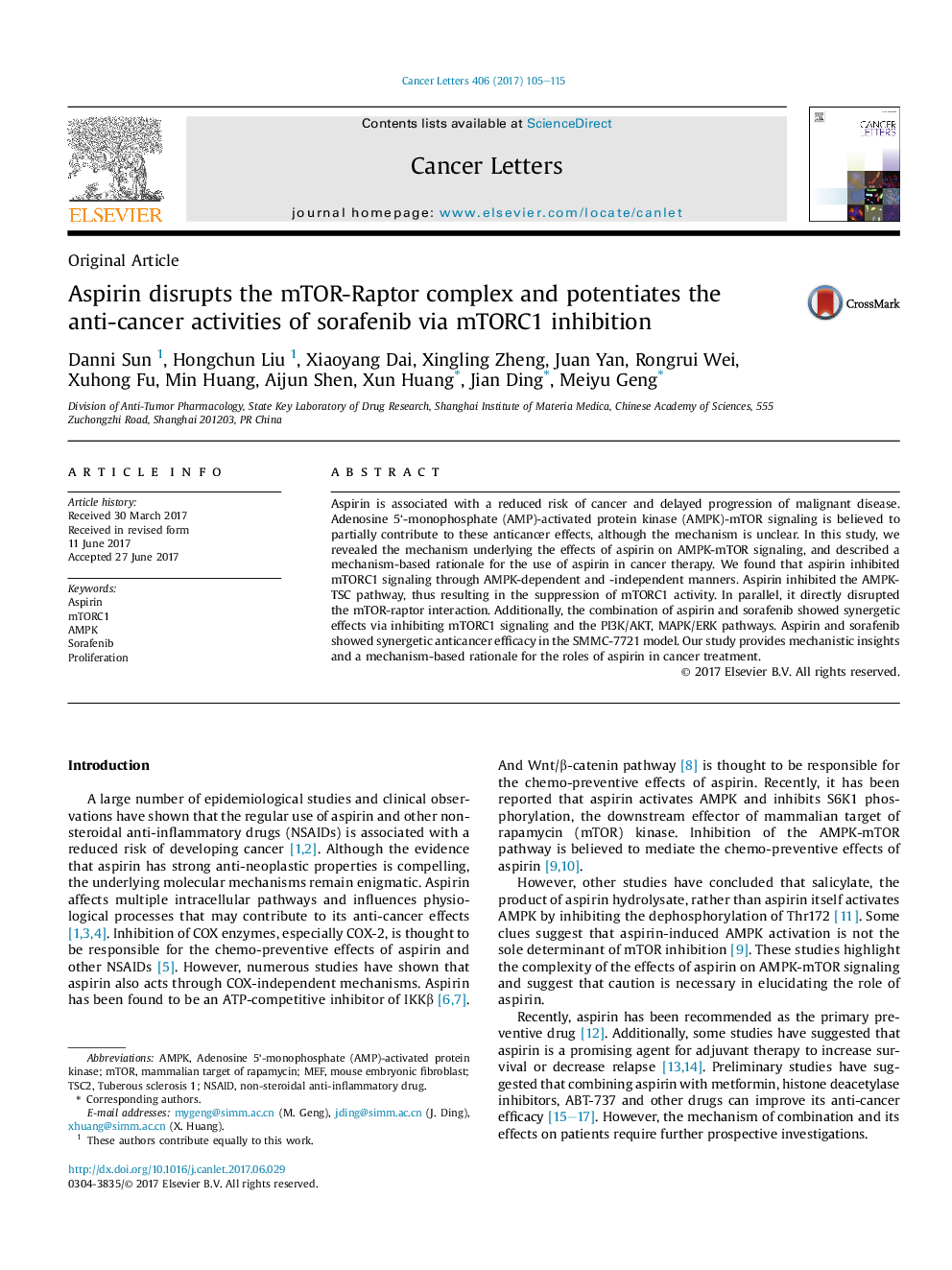| کد مقاله | کد نشریه | سال انتشار | مقاله انگلیسی | نسخه تمام متن |
|---|---|---|---|---|
| 5525359 | 1546663 | 2017 | 11 صفحه PDF | دانلود رایگان |

- Aspirin inhibits mTORC1 signaling in an AMPK-independent manner.
- Aspirin disrupts the mTOR-raptor interaction.
- mTORC1 inhibition contributed to the synergistic effect of aspirin combining with sorafenib.
Aspirin is associated with a reduced risk of cancer and delayed progression of malignant disease. Adenosine 5'-monophosphate (AMP)-activated protein kinase (AMPK)-mTOR signaling is believed to partially contribute to these anticancer effects, although the mechanism is unclear. In this study, we revealed the mechanism underlying the effects of aspirin on AMPK-mTOR signaling, and described a mechanism-based rationale for the use of aspirin in cancer therapy. We found that aspirin inhibited mTORC1 signaling through AMPK-dependent and -independent manners. Aspirin inhibited the AMPK-TSC pathway, thus resulting in the suppression of mTORC1 activity. In parallel, it directly disrupted the mTOR-raptor interaction. Additionally, the combination of aspirin and sorafenib showed synergetic effects via inhibiting mTORC1 signaling and the PI3K/AKT, MAPK/ERK pathways. Aspirin and sorafenib showed synergetic anticancer efficacy in the SMMC-7721 model. Our study provides mechanistic insights and a mechanism-based rationale for the roles of aspirin in cancer treatment.
Journal: Cancer Letters - Volume 406, 10 October 2017, Pages 105-115